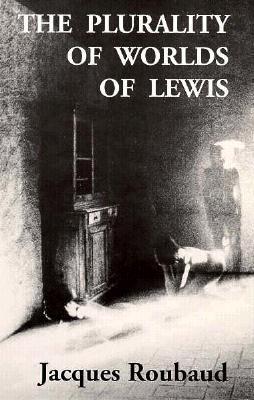
| Title | : | Plurality of Worlds of Lewis (French Literature Series) |
| Author | : | |
| Rating | : | |
| ISBN | : | 1564780694 |
| ISBN-10 | : | 9781564780690 |
| Language | : | English |
| Format Type | : | Paperback |
| Number of Pages | : | 109 |
| Publication | : | Published March 1, 1995 |
Plurality of Worlds of Lewis (French Literature Series) Reviews
-

These poems are a continuation of the elegiac exploration of the death of Roubaud’s wife Alix begun in Some Thing Black, but move beyond grief and sorrow to a kind of reacquaintance with the world. David Lewis’s On the Plurality of Worlds, a treatise on modal realism (the theory that there are multiple, even infinite universes and worlds) serves as the skeletal structure of the first two sections of the book; but the third section, “Circles in Meditation”, prose poems about vegetable and mineral structures, weather, clouds, cities, natural and imagined forms, reflections on the self and the lost other, this is where the real gems of the collection are found. “Cartwright Gardens: A Meditation” is one of the most exquisite pieces of writing I have encountered in a long time. Not as submersed in the immediate aftermath of the loss, the poems in this collection tend toward a more abstract language and composition and allow a more contemplative distance than those of Some Thing Black, but the two volumes taken together are a remarkable representation of the power and powerlessness of art to sustain a human being through great personal tragedy.
Lyrical
swaying line of leaves
the tops of seven English poplars in the distance
beyond the blue and green space
concede your dissolution.
unlikely that I thought, in June,
when those far tree tops and your bush, peak
of nudity, waved to me under the warm
tongues of windows filling with sun,
how brief those mornings were, and how equivocal.
I knew it, I remember, a beautiful day,
with that beauty of air that says nothing,
puts hours in our hands and vanishes.
how warm the smell of short grass, crushed
and covered
by your legs. -

why not
against my face, the angel's, the black shadow face itself,
but all the seats are taken, all the worlds
unavailable
Strange cubish stanzas, reminiscent of Crane yet glistening with loss. Mournful shadows rule this roost. Agency leaks a cry when it finds the length of the tether. There is pause when these limits are considered. Cue the pain.
Roubaud utilizes a theoretical point of departure to imagine an innumeracy of worlds, yet finds the imagination insufficient for any transport away from his grief. His own feeling disallows the possibility of abstraction. The face must be scaled. -

The death of Roubaud's wife unhinged, unmoored, and alienated him, and he's grappling with his intangible memory of her, the inescapable fact of her death, and his own continued existence in this world. Overall, a moving, if uneven, collection. I would give it somewhere between 3 and 4 stars.







